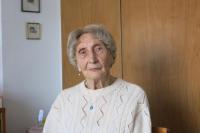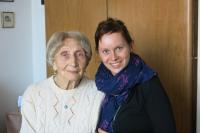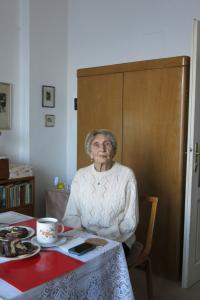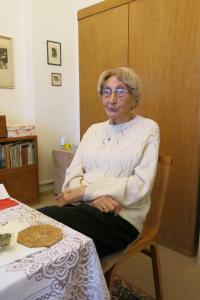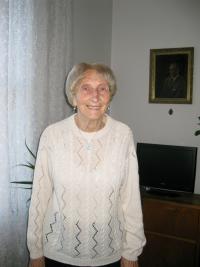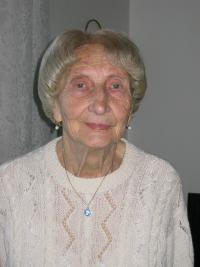The lady who wrote a letter to minister Moravec

Stáhnout obrázek
Marta Dušánková was born October 20, 1924 in Prague. Her father worked as a locksmith and her mother was a housewife who raised Marta and her older brother Miloš. After completing elementary school in 1939, Marta apprenticed in the hairdressing parlour of her uncle in Prague-Libeň. She completed her apprenticeship in 1943. In spring 1944 she received a draft notice for conscripted labour. She ignored the first notice because a family friend alerted them that Marta was to be sent to Berlin. She was hid in a friends‘ house outside of Prague for two days while the Gestapo searched for her. She then faked an illness for three weeks and received a fake doctor‘s certificate pronouncing her unable to work. In April 1944 she eventually went with a group of twenty people to Vernéřovice in the Broumov region where she worked in a factory that produced aircraft engines. She stayed in the nearby village of Stárkov during that time. After more than ten months of forced labour she returned to Prague and was sent to a factory in Prague-Troja. After the end of the war she returned to her profession as a hairdresser and she married. Mrs. Marta Dušánková is a widow and she lives in Prague.

